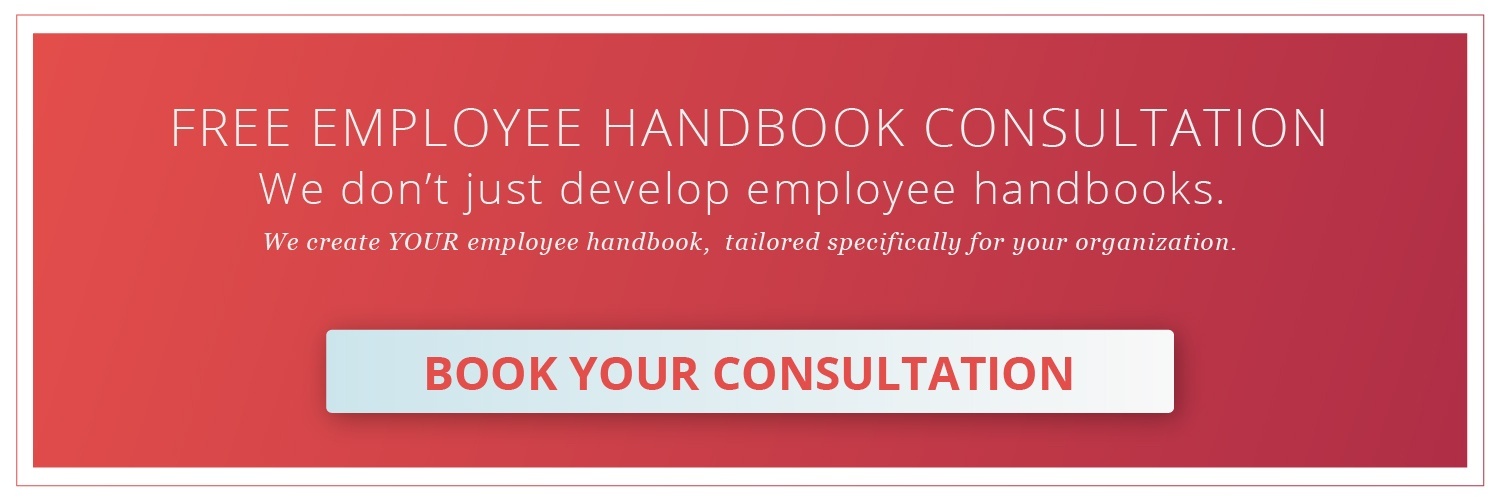Finding and keeping good employees is an essential function in every business. And a key component of successful recruiting and hiring is an engaging company culture.

[This post was originally published in July 2018 and has been substantially revised and updated to reflect a more current view of this topic.]
Your company's culture exists either by default or by design. While some of the factors are organic in nature, there are definite culture development practices that organizations can implement to help build and sustain an engaging culture.
The problem for too many organizations is managerial neglect or complacency. In other words, the culture of the company is simply left to develop without purpose or intent.
However, it has been shown that there strategic and effective actions that can be taken that can help to “re-shape” a workplace culture , and to direct and nurture a desired culture.
And a significant role in culture building belongs to the HR management and staff.
Company Culture: By Design, or By Default?
"The key to a successful organization is to have a culture based on a strongly held and widely shared set of beliefs that are supported by strategy and structure. When an organization has a strong culture, three things happen: Employees know how top management wants them to respond to any situation, employees believe that the expected response is the proper one, and employees know that they will be rewarded for demonstrating the organization's values." - SRHM on Understanding and Developing Organizational Culture
Most business owners and managers have a sense of how important culture is to their business. Yet, too many of these same people believe that there is little or nothing they can do affect the culture of their organization. Unfortunately, many business leaders believe that culture their company's culture is strictly organic and inherently outside of the influence of management.
This has been repeatedly shown to be untrue, however, and a structured and intentional strategy can be implemented to change and foster a preferred company culture.
For example, it’s been shown that culture is one of the primary drivers of employee engagement. And, in most businesses, the HR department plays a key role in the creation (or “re-creation”) of the company culture though strategic recruiting, comprehensive onboarding, ongoing training, and tailored benefits offerings, among other things.
And employee engagement is critical to a healthy and thriving organization.
Employee engagement is one of the main keys to retention and worker loyalty. And it is largely a result of how employees identify with the company, especially with the organization’s values and purpose. This is true despite the value employee’s may place on salary and benefits.
In other words, when employees believe in and align with a company’s purpose, they are more engaged, perform better, and stay longer. Which are all key reasons for developing and fostering a desired culture in your organization.
In addition to employee engagement, culture has a a direct and measurable impact on a company's ROI.
According to research,
"Nearly 9 out of 10 executives surveyed cited culture as important yet only 12% of companies believe they understand their culture. Companies that proactively manage culture demonstrate revenue growth over a 10-year period that is, on average, 516% higher than those who do not. For example, organizations that actively manage their cultures typically have 30% higher levels of innovation and 40% higher levels of retention."
Does Culture Really Matter?
“Corporate culture is the only sustainable competitive advantage that is completely within the control of the entrepreneur. Develop a strong corporate culture first and foremost.” — David Cummings, Co-founder of Pardot
A 1992 study from Harvard professor John Kotter and co-author James Heskett compared businesses that focused on company culture as a key part of their strategy and those that did not. Some of their findings showed that companies who worked to create strong culture saw their revenues increase four times faster, had job creation rates seven times higher, and saw profits increase 750 percent higher than companies that neglected culture.
In addition, these culture-focused businesses saw their customer satisfaction double along with reduced employee turnover.
Another recent study found that 69 percent of employees cite “meaningfulness at work” as a major reason they felt strong satisfaction with their company. According to an article at Entrepreneur magazine noted that a strong culture reduces turnover by as much as 34 percent compared to companies with a culture that is lacking or dysfunctional.
How do you build a strong culture?
Here are some tips for changing your current company culture and guiding the process of building a strong and engaging culture for your organization:
Articulate your company’s purpose. In other words, what is it about your product or service that will inspire your employees with something they believe in?
Identify your company’s values. Some experts advise you to “create values” but you should, as the leader(s) of your business, already hold to certain values that you want your employees to embrace and align with.
Document your company story. This may include some of the company history but should focus on some event or person that embodies the spirit and essence of your organization. You then craft a story that will be shared often and gives employees and others an emotional reference and touch point.
Recruit for your culture. Having articulated your company’s purpose, identified your values, and crafted a company story, you’ll know the type of people who will be a good fit for your culture. A qualified candidate with appropriate skills will still be a poor hire if they don’t fit into your culture.
Reinforce your purpose and values. Develop daily, weekly, and monthly activities that highlight your company’s purpose, vision, and values. These activities also provide great opportunities to share your story, when relevant, to help impart it into your employees.
According to SHRM,
"HR leaders are responsible for ensuring that culture management is a core focus of their organization's competitive efforts. For HR leaders to influence culture, they need to work with senior management to identify what the organizational culture should look like. Strategic thinking and planning must extend beyond merely meeting business goals and focus more intently on an organization's most valuable asset—its people."
The Value of Employee Engagement
A strong and developing culture will work to fully engage employees. Once they embrace and align with the company’s purpose and values, they are far more easily inspired and motivated to achieve high performance.
An article at Forbes noted,
"There’s a reason why companies who are named as a Best Place to Work see so much success. These organizations tend to have strong, positive corporate cultures that help employees feel and perform their best at work. Research gathered by CultureIQ found that employee’s overall ratings of their company’s qualities – including collaboration, environment and values – are rated 20% higher at companies that exhibit strong culture."
It is demonstrably true that engagement is the primary driver of improved performance, employee satisfaction, and retention. For example, one study showed that engaged employees outperform nonengaged employees by over 200 percent.
In addition, fully engaged employees “return” close to 120 percent of their salary compared to just 60 percent with disengaged employees. It makes sense that people who care will be more productive, and these statistics serve to underscore just how important employee engagement is.
It is critical to have processes to develop your workforce. Allocate specific company resources for employee development to provide relevant knowledge and critical skills. Investing in your employees also demonstrates that you care and have confidence in them.
Effective communication is absolutely essential for a strong culture. Encourage and support regular two-way communication between management and employees to promote employee engagement. Effective communication serves to shape an employee’s relationship with their managers.
And, finally, develop methods for regularly communicating company values.
Employees are busy with their job functions and need to be reminded what the company stands for, what it wants to achieve, and how they contribute. This will also reinforce the idea that company purpose and values are more than a superficial and forgotten mission or vision statement pinned to a wall.
Getting Help With Your HR Management
HR staff have a growing and demanding role in recruiting, hiring, and continually training employees. In addition, they are responsible for other functions such as employee development, payroll management, employee records compliance, and managing employee benefits.
Outsourcing is increasingly becoming a cost-effective and strategic option. Accuchex can help you in managing your HR needs, payroll processes, and staying on top of compliance demands.
Get your Free Download: Payroll Outsourcing Guide to help you make an informed decision or call Accuchex Payroll Management Services at 877-422-2824.






